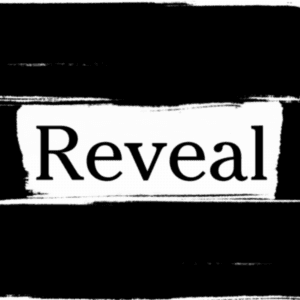Reveal
The Center for Investigative Reporting and PRXReveal’s investigations will inspire, infuriate and inform you. Host Al Letson and an award-winning team of reporters deliver gripping stories about caregivers, advocates for the unhoused, immigrant families, warehouse workers and formerly incarcerated people, fighting to hold the powerful accountable. The New Yorker described Reveal as “a knockout … a pleasure to listen to, even as we seethe.” A winner of multiple Peabody, duPont, Emmy and Murrow awards, Reveal is produced by the nation’s first investigative journalism nonprofit, The Center for Investigative Reporting, and PRX. From unearthing exploitative working conditions to exposing the nation’s racial disparities, there’s always more to the story. Learn more at revealnews.org/learn.
Reveal’s investigations will inspire, infuriate and inform you. Host Al Letson and an award-winning team of reporters deliver gripping stories about caregivers, advocates for the unhoused, immigrant families, warehouse workers and formerly incarcerated people, fighting to hold the powerful accountable. The New Yorker described Reveal as “a knockout … a pleasure to listen to, even as we seethe.” A winner of multiple Peabody, duPont, Emmy and Murrow awards, Reveal is produced by the nation’s first investigative journalism nonprofit, The Center for Investigative Reporting, and PRX. From unearthing exploitative working conditions to exposing the nation’s racial disparities, there’s always more to the story. Learn more at revealnews.org/learn.
Take No Prisoners
In December 1944, Frank Hartzell was a young soldier pressed into fierce fighting during the Battle of the Bulge. He was there battling Nazi soldiers for control of the Belgian town of Chenogne, and he was there afterward when dozens of unarmed German prisoners of war were gunned down in a field.
Reporter Chris Harland-Dunaway travels to Belgium to tour Chenogne with Belgian historian Roger Marquet. Then he sits down with Bill Johnsen, a military historian and former dean of the Army War College in Carlisle, Pennsylvania, to ask why the Patton Papers don’t accurately reflect Gen. George S. Patton’s diary entries about Chenogne.
The massacre at Chenogne happened soon after the Malmedy massacre, during which Nazi troops killed unarmed American POWs. The German soldiers responsible were tried at Dachau, but the American soldiers who committed the massacre at Chenogne were never held accountable. Harland-Dunaway interviews Ben Ferencz, the last surviving lawyer from the Nuremberg Trials, about why the Americans escaped justice.
And finally, Harland-Dunaway returns to Hartzell to explain what he’s learned and to press Hartzell for a full accounting of his role that day in Chenogne.
This episode was originally broadcast July 28, 2018.
Don’t miss out on the next big story. Get the Weekly Reveal newsletter today.
